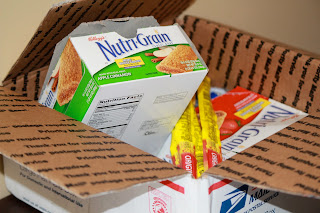Cannonball Projects is a two-man company that operates out of a single rented room on the twelfth floor of 1501 Broadway. It develops an IPhone and Android app called Cannonball that combines group chat, event planning, and the “check-in” concept of Foursquare.
In a room no bigger than an average New York City bedroom, Ryan Gyure, 21, and Chris Parcel, 22, work, sleep, and eat.
“The office is home. Sometimes we go somewhere to sleep. Sometimes we go somewhere to drink,” says Parcel, the Chief Product officer, and a UCLA graduate with a degree in Economics.
Their sole investor, Gordon Ebanks, is one of the most successful venture capitalists in New York City. In February, he was contracting Gyure for a small project for his own company when Gyure confessed he’d be late with his assignment because of an outside project. After hearing about the project, Ebanks suggested a partnership that would start off at an initial investment of $35,000 every three months for operational costs, legal fees, and a ticket out to New York in exchange for a promise that the product would come to life by mid-October.
“He was very intrigued and showed quite a bit of interest in the project,” says Ryan.
Taking a year off of college at the University of Arizona, Gyure moved to the city and immediately reached out to Chris through the McKelvey Scholars program. A couple Skype interviews later, Parcel agreed to leave the start up hotbed of the Silicon Valley and move to New York.
“New York is a high-risk location to be operating out of,” Gyure admits, “but the proximity of our investor, and the success of apps like Foursquare, which has the most activity in New York, lured us here.”
The only routine part of their day is a forty-five minute commute back and forth from their shared apartment in Harlem to Times Square, where the Cannonball Projects office is located. From then on, each day is as unpredictable as the last. With no set schedule and the temptations of being self-employed, Parcel and Gyure work to exercise discipline and diligence.
Late nights most often occur before launch dates when they are asked to submit updates to the app store, or prior to check-ins with Ebanks, with whom their relationship is much more intimate than that of most other start-ups. “He has so many contacts in the city, and he is constant reminder that our plans need to make business sense and not just technical and social sense,” says Gyure
But it is New York’s social media culture that has influenced the Gyure and Parcel the most in their design of the product.
“Just being around the city with eyes and ears open accounts for so much of our decisions. Less than five percent of what we learned in college we’ve come to use. The rest is curiosity, understanding people, and getting feedback. This is pretty big for us both, to be doing this sort of thing,” says Gyure.
“We were skeptical at first, but New York came through. People here are much more deliberate about making plans, and proactive in creating events ahead of time. We’re here to improve the most fundamental dialogue of planning, and if there’s work to be done in fostering better communication between groups, then we still have a job,” responds Parcel.
But the days can be grueling. The typical day ends around 1:00 AM as the two trudge home for a quick rest. During launch weeks, the day can end around 5:00 AM. On those days, Gyure and Parcel pull pillows from the closet and sleep on the carpet area under their respective desks. With their deadline for a finalized product the last week of October, neither can sign leases for apartments. Schedules are never dictated, only self-created, and the two must gauge how much work they plan on doing, and what days it might be wise to just go home. The two spend weekends coding, working with their Android developers in Russia, and conversing with their graphic designer in India.
“It’s obviously a lot of hours, but it’s fun. After a while, you get over the discipline aspect of it and just do what needs to be done. Some days we’ll treat ourselves and take a Thursday off. But we’ll agree to come in that Saturday and Sunday,” says Parcel.
But both acknowledge that despite the amount of work and dedication that goes into a project like this, it is inevitable that their idea will either be unsuccessful and unnecessary or successful and then copied.
“The Googles, Microsofts, and Facebooks will simply take our idea. We know that’s the end of it all, sadly. It’s not a matter of ‘if’, but really a matter of ‘when,’ and when the day comes, will we sell our hard work?” says Parcel.









No comments:
Post a Comment